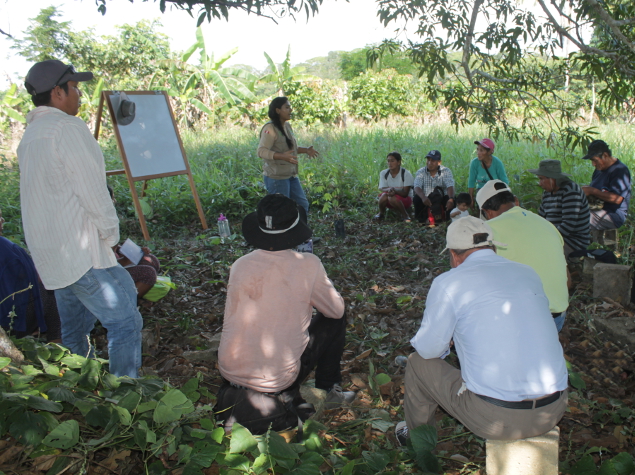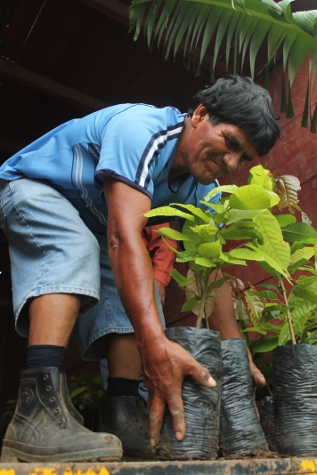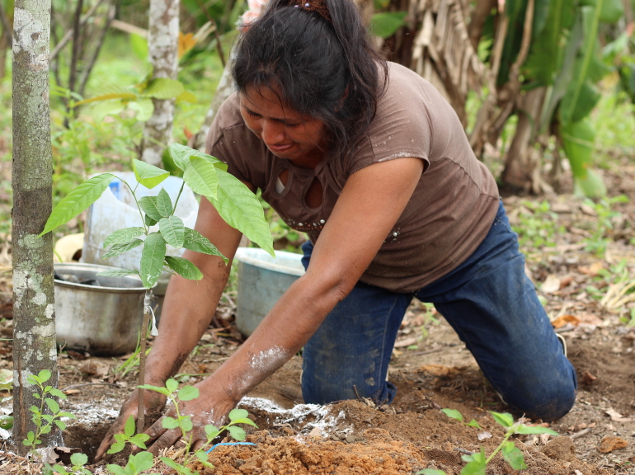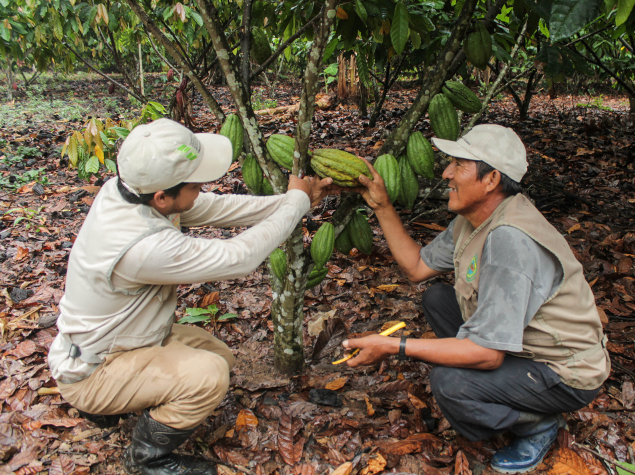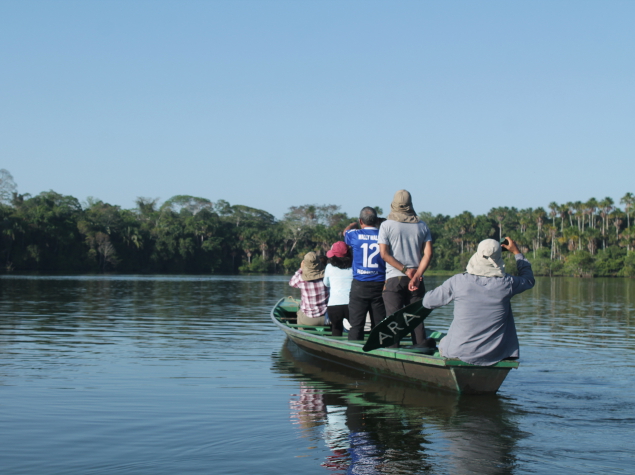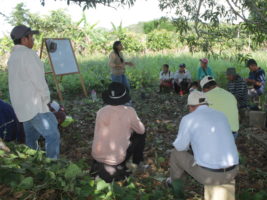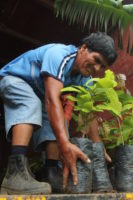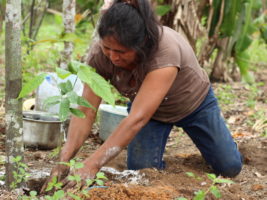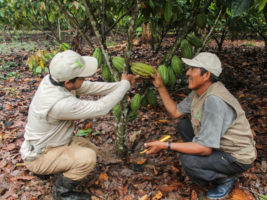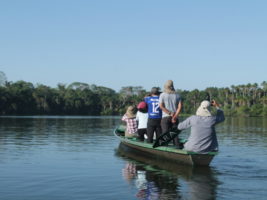Zero-deforestation sustainable cocoa for climate and biodiversity conservation around the Tambopata national reserve and the Bahuaja-Sonene national park
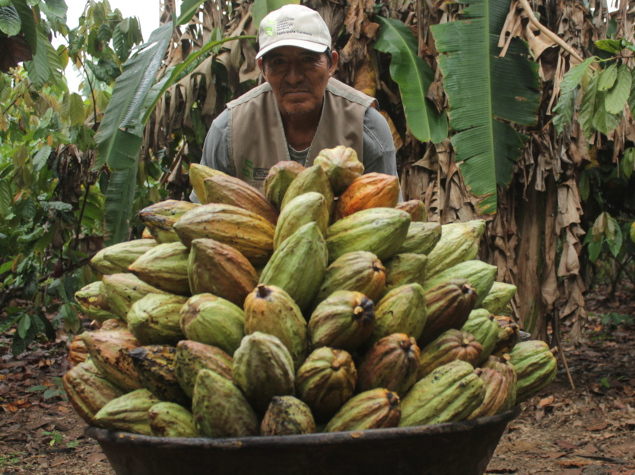
Context:
The region of Madre de Dios suffers from an acceleration of deforestation. This is due to extensive agriculture and gold mining which are often viewed as the main source of income for local populations, especially smallholders and indigenous people.
Within a management contract established with the Peruvian State for the management of the Tambopata National Reserve and the Bahuaja-Sonene National Park, AIDER developed a REDD+ (avoided deforestation) project that led to the plantation of 1,250 ha of cocoa in agroforestry in the buffer zone and the establishment of a farmers’ cooperative, COOPASER, combined with surveillance and biological monitoring activities around the park and reserve.
Although technical assistance exists, it does not cover the total area of intervention. Farmers need techniques to fine-tune their production and organic certification. Also, the cooperative lacks financial liquidity to cover the production acquisition costs, which makes farmers selling their products to third parties. 30% of cocoa plantations need to be consolidated and adapted to the recent climate trends.
Objective:
This project aims to reduce CO2 emissions and biodiversity losses linked to deforestation through alternative income generating activities for local communities and monitoring activities in the buffer zone.
Activities:
The technical and operational skills of COOPASER’s members will be improved on deforestation-free cocoa production. 300 farmers will be trained, including in organic certification/fair trade process under a gender approach. Agroforestry plots will be georeferenced and consolidated through the plantation of forest species in the total area of the project.
The financial sustainability of COOPASER will be improved via maintaining a revolving fund for the collection/commercialization of cocoa production from its partners.
Its management and performance will be improved via the optimization of its operational costs, trainings in governance and in plant/quality management. A marketing strategy will be developed as well.
In parallel, AIDER will continue its biological monitoring, research and surveillance activities within the protected area.
Final summary report (May 2022):
This project was one of the three REDD+ experiences in National Protected Areas in Peru. The main objective was to reduce CO2 emissions and biodiversity losses linked to deforestation through alternative income generating activities for local communities. This consisted in the production and selling of certified cocoa by a local cooperative, COOPASER. 298 farmers (including 72 women) received technical assistance. Among them, 189 producers had their plots georeferenced, totalling 753 ha of cocoa, including 76 plots with organic certification. 42 136 seedlings were also provided to farmers and planted in their plots to consolidate the agroforestry system. 267 COOPASER partners were trained in organic certification (including 56 women) and 76 producers obtained the MAYACERT certification. 3 training workshops were also realized on fair trade criteria.
To strengthen the financial sustainability of COOPASER for the acquisition of cocoa from its partners, the project also aimed at improving the financial liquidity of the cooperative, which turned to be more challenging. Through the increase of its working capital, mainly thanks to Fondation Ensemble support and through alliances to cover the supply of production, 58% of the operation and production costs were covered by the end of 2021. It enabled the cooperative to purchase 801 T of sustainable cocoa from its members from 2019 to 2021. Among the 440 T of organic cocoa collected in 2020 and 2021, 308 T were sold with the organic certification. The management of COOPASER was also strengthened and it is participating more actively in the market, working towards its consolidation and positioning at national and international level.


